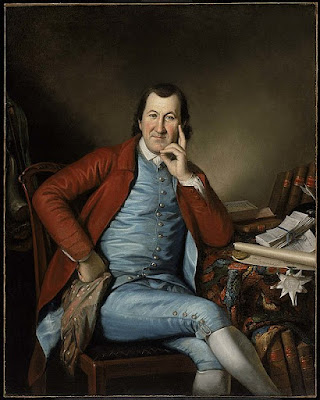No, I'm not referring to the names of Beavis and Butt-Head's new girlfriends. I'm referring to the way I feel when I'm exposed to certain written or spoken words or phrases, and (sometimes) situations. Bear in mind that I'm also getting old, and old folks can be especially petty and peevish.
The strange thing is, some of my pet peeves don't seem to upset other people at all, and many things that bother others are just fine with me. Also, my PPs change with the passage of time. I grow to accept some things that I didn't like while I find that other things have suddenly begun to irritate me. Bear in mind that almost all these things are relatively unimportant.
Here are some of my current pet peeves, most of them part of the literary or broadcast world. I doubt many of you will agree with me on these, but my wife's tired of hearing about them, and I read someplace that confession is good for the soul.
PET PEEVES 1 -- Words/phrases that I find annoying:
Utilize. This word, to me, is clear proof that someone's looking too hard for synonyms, and maybe just trying to sound intelligent. Utilize isn't incorrect; it's just unnecessary. Use "use" instead.
Share in common. Folks either share something or they have it in common. Not both. I heard this exact phrase in a news report earlier this week.
Blonde as an adjective. Talk to me all you want about feminine/masculine. Blonde is a noun. Blond is (usually) an adjective. The blonde has blond hair.
Icon. These days, anyone who's remotely popular or newsworthy is an icon. I heard someplace that actor Jennifer Lawrence is an icon. I happen to like Jennifer Lawrence, and her movies, but is she iconic? I doubt it, and I bet she'd agree with me.
Between you and I. This is probably my biggest peeve, and I hear it all the time, from people who should know better. I even wrote a SleuthSayers post about this, last year. It's between you and me, about you and me, from you and me. Not you and I.
OK. When I see OK, I always wonder if it should be pronounced "ock," as if you're choking. I realize the spelling is optional, but I prefer okay.
Mic. Same thing. This looks like "mick" to me. I'd rather spell it the way it's pronounced: "mike." This is one of those pet peeves on which I am usually outvoted--and that's okay.
Data. I pronounce it "dayta," not "datta." All my colleagues at IBM did the same. And yes, I know, either is acceptable.
Stunning, as in "stunning video." Newscasters love this. One of them said, a few weeks ago, "Coming up: stunning new images in the P. Diddy trial." I saw the images and remained unstunned. The problem here, I think, is overuse. Plus, not everything in the news should be hyped. Same thing goes for other unneeded exaggerations that anchors love, like bombshell and blockbuster (and iconic).
As well. I think this, too, has become overused, especially in weather broadcasts. Almost every sentence often ends with "as well," with the two words drawn out to last awhile, to (I guess) use up more airtime. Why not, at least occasionally, just say also?
Towards. Shouldn't it be toward, in American English? I thought towards was British.
Journey. Almost any endeavor these days is a journey--marriage, college, career, recovery from an illness, a relocation, a job change, a prison sentence, anything. A TV commercial the other day referred to "your weight-loss journey." I mean, for Heaven's sake. It's another word to file under OVERUSED.
Penned. Once again, a case of looking too hard for synonyms--this time for wrote or written. "She penned a new story"? Come on. Just say she wrote it.
No problem. This, usually a reply to "thank you," is used so much it's mindboggling--especially by waiters and waitresses. I suppose there's really no problem with no problem, but whatever happened to you're welcome?
Reach out to. This phrase is okay--I've said and written it myself, and probably will in the future--but I think it too has become overused. Contact seems to work better. Not that it matters, but the first time I ever heard the phrase reach out to was in the late '70s, in the Joe Don Baker movie To Kill a Cop, which later evolved into the TV series Eischied. He said it constantly. (Pretty good movie, by the way.)
Nor'easter. When words are shortened, it's usually to cut out time-consuming syllables. This doesn't. I know it's a historical and catchy word, but why not just leave the "th" in there?
Literally. Overused and often misused. If you hear "He was literally between a rock and a hard place," he ought to be in physical pain. In fact, mashed.
Alright. I've mentioned this one before, at this blog. I think it should be two words: all right. (Remember it this way: alright is not all right.)
Chapter. I'm not sure if this is a mini-journey or if a journey is a mini-chapter. I don't think I'll worry about it--or use it in a sentence.
I'm sorry for your loss. I feel a little guilty including this in my list, but as I said, I'm confessing, and I confess that I have come to dislike this phrase. When said honestly, it can certainly be an expression of sincere condolence, and I believe it usually is, but I think it's been so overused that it's become almost meaningless, sort of like thoughts and prayers. The truth is, it's hard to find correct and appropriate words of comfort in grief situations, but lately I've been trying to choose words other than these.
A sense of closure. I think I've just heard this too many times.
Impact as a verb. this is, without doubt, our newest and most popular international buzzword. Watch any newscast or weathercast and count the number of times impacted is used in this way. I understand that it isn't grammatically incorrect--but in my view, a road closure or a drizzly forecast or an event cancellation doesn't impact me. An asteroid might, or a runaway train, or even an unseen foul ball. I think impact has become one of those words, like stunning, that's used to make something sound more important, threatening, or dangerous than it really is. (Strong verbs are a good thing, in writing. In speaking--at least in this case--not always.)
PET PEEVES 2 -- Everyday-life annoyances:
Talking during a movie. Unless you see something on fire, don't.
Reclining airplane seats, in front of me. Be considerate--I'm six foot four, and there are only so many places I can put my knees.
Telemarketers/robocalls. Is there anyone who doesn't hate these?
Loud conversations on cell phones in public. I honestly believe that if cell phones had cords, users would be strangled regularly.
Attempting a Southern accent, in the movies, etc. This is like playing the guitar: hard to do well and easy to do badly. The worst examples I can think of are probably Daniel Craig in Knives Out, Tommy Kirk (Travis) in Old Yeller, and Nicolas Cage in Con Air, but there are many, many. This is one reason I've always liked Tommy Lee Jones, Billy Bob Thornton, Kim Dickens, Holly Hunter, etc. I can always understand what their characters are saying. They talk the way my family, friends, and neighbors talked, when I was a kid. Music to my ears.
TV commercials for pharmaceutical products. Every one of these says something like "Tell your physician about NewWonderDrug." It seems to me that if you need to tell your doctor how to treat your illness, you should find a new doctor. And my God, those lists of side effects . . .
Flat-brimmed baseball caps. I'm pretty sure there has never, in the history of the world, been anything else that can so immediately transform a regular-looking guy into a goofy-looking guy. My opinion only.
PET PEEVES 3 -- Things that seem to upset others but don't bother me:
Clipping nails in public. Clip away. Can I borrow those when you're done?
Cracking knuckles. Same thing. My wife hates this. I say, have at it.
Walking too slowly. This probably did bother me, when I was younger.
Talking over people. Hey, sometimes you have to. (See cell phone use in public, above.)
Waitresses I've never met who call me "sweetie," "honey," etc. Doesn't bother me. Then again, I'm from the South. We grew up with this kind of foolishness, all the time.
Babies crying in public. Why should I mind? Babies are gonna cry, and you can't very well leave 'em home alone.
One last thing, since I've probably worn you out by now. I fully realize that many of you, some of whom are editors, have your own hot-buttons--especially those involving language and style--and will disagree with most of mine. So here are my questions:
What are your pet peeves? Are some of them casual preferences, where you could go either way? Are some set in stone? (As for short stories, I simplify all this by hiding my opinions and trying to make the language in my submissions follow whatever rules the editor prefers, in his or her guidelines. As you know, some guidelines are extremely detailed.) Have you found yourself in situations where you feel strongly enough about some of this that you need to argue with the editor about it? If you yourself are an editor, have you seen many of those situations? Do most submitters comply in the end? Aside from the publishing business, how about your common old everyday peeves?
Alright, that's it. May you utilize all this to pen iconic stories and journey unimpacted towards stunning successes.
(He said, peevishly.)






























